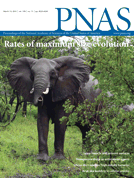Higher social class predicts increased unethical behavior
- aDepartment of Psychology, University of California, Berkeley, CA 94720; and
- bRotman School of Management, University of Toronto, Toronto, ON, Canada M5S 3E6
-
Edited* by Richard E. Nisbett, University of Michigan, Ann Arbor, MI, and approved January 26, 2012 (received for review November 8, 2011)
Abstract
Seven studies using experimental and naturalistic methods reveal that upper-class individuals behave more unethically than lower-class individuals. In studies 1 and 2, upper-class individuals were more likely to break the law while driving, relative to lower-class individuals. In follow-up laboratory studies, upper-class individuals were more likely to exhibit unethical decision-making tendencies (study 3), take valued goods from others (study 4), lie in a negotiation (study 5), cheat to increase their chances of winning a prize (study 6), and endorse unethical behavior at work (study 7) than were lower-class individuals. Mediator and moderator data demonstrated that upper-class individuals’ unethical tendencies are accounted for, in part, by their more favorable attitudes toward greed.
Footnotes
- ↵1To whom correspondence should be addressed. E-mail: paulpiff{at}gmail.com.
-
Author contributions: P.K.P., D.M.S., S.C., and D.K. designed research; P.K.P. and D.M.S. performed research; P.K.P. analyzed data; and P.K.P., D.M.S., S.C., R.M.-D., and D.K. wrote the paper.
-
The authors declare no conflict of interest.
-
↵*This Direct Submission article had a prearranged editor.
-
This article contains supporting information online at www.pnas.org/lookup/suppl/doi:10.1073/pnas.1118373109/-/DCSupplemental.







